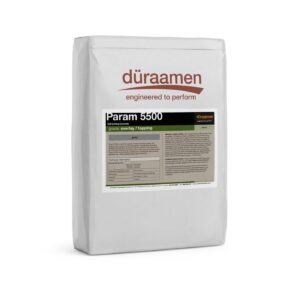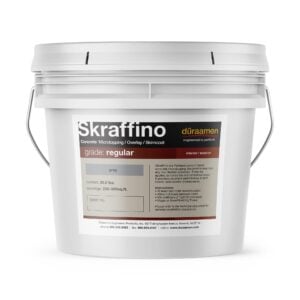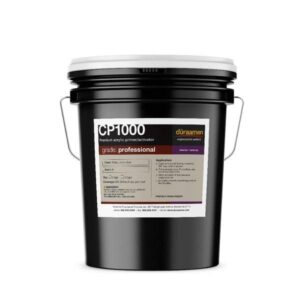When it comes to preserving and enhancing the longevity of your concrete surfaces, choosing the right concrete sealer is a crucial step in the maintenance process. The decision-making process may seem daunting, With myriad options available, ranging from penetrating sealers to acrylic and epoxy variants. In this comprehensive guide, we will explore the various types of concrete sealers, their applications, and the key factors to consider to ensure you make the right choice for your specific needs.
Understanding the Basics: Types of Concrete Sealers
1. Penetrating Concrete Sealers:
Penetrating sealers, also known as impregnating sealers, are designed to penetrate the surface of the concrete, forming a chemical barrier. These sealers are excellent for protecting against water damage, freeze-thaw cycles, and salt. They work by filling the pores of the concrete, making them ideal for exterior surfaces such as driveways, pool decks, and concrete pavers.
2. Acrylic Sealers:
Acrylic sealers are a popular choice for both interior and exterior applications. They come in water-based and solvent-based formulations, offering versatility in application. Acrylic sealers create a protective film on the surface of the concrete, providing resistance against water and chemicals. They are commonly used for decorative concrete and stamped concrete and are available in various gloss levels, allowing you to achieve the desired finish.
3. Epoxy Sealers:
Epoxy sealers form a robust, glossy finish on the surface of the concrete. They are particularly well-suited for high-traffic areas such as garage floors and commercial buildings. Epoxy sealers create a chemical bond with the concrete, offering excellent protection against oil stains, chemicals, and heavy foot or vehicle traffic. They are available in solvent-based and water-based formulations.
4. Polyurethane Sealers:
Polyurethane sealers provide a durable and long-lasting protective layer on the surface of the concrete. Polyurethane sealers are often chosen for concrete countertops, floors, and exterior surfaces. They are available in water-based and solvent-based formulations, each offering unique benefits.
5. Polyaspartic Sealers
Polyaspartic sealers provide a protective barrier against various environmental factors, including harsh weather conditions, chemicals, and abrasion, effectively extending the lifespan of concrete surfaces. With their high-performance characteristics and versatility, polyaspartic sealers have become a preferred choice for sealing and enhancing the durability of concrete floors in residential, commercial, and industrial settings.
Factors to Consider When Choosing a Concrete Sealer
1. Type of Concrete Surface:
The type of concrete surface you are sealing plays a pivotal role in selecting the right sealer. For exterior applications like driveways, pool decks, and concrete pavers, penetrating sealers or acrylic sealers are often recommended. Interior floors, especially in high-traffic areas, may benefit from epoxy or polyurethane sealers.
2. Weather Conditions:
Consider the prevailing weather conditions in your region. If the concrete surface is exposed to direct sunlight, UV-resistant sealers are a good idea to prevent discoloration and damage from UV rays. In areas with wet weather, choose a sealer with excellent water repellency.
3. Application Location:
Whether the concrete surface is indoors or outdoors influences the type of sealer you should choose. Acrylic sealers, for example, are versatile and suitable for both interior and exterior use. Epoxy sealers, with their glossy finish, are often preferred for indoor applications like garage floors.
4. Gloss Preference:
Consider the desired appearance of your concrete surface. Acrylic sealers come in various gloss levels, allowing you to achieve a matte, satin, or glossy finish. Epoxy sealers typically provide a glossy sheen, enhancing the surface’s aesthetic appeal.
5. Traffic and Usage:
Evaluate the amount and type of traffic the concrete surface will endure. High-traffic areas, such as driveways and commercial buildings, may benefit from the durability of epoxy or polyurethane sealers. For decorative concrete or surfaces with less traffic, acrylic sealers can be a great choice.
6. Ease of Application:
Consider your comfort level with the application process. Water-based sealers are generally easier to apply and odorless than solvent-based sealers. Epoxy sealers may require more careful application with multiple thin coats for the best results.
7. Environmental Impact:
For those conscious of environmental factors, consider the environmental impact of the sealer. Water-based sealers typically have lower volatile organic compounds (VOCs) levels than solvent-based sealers, making them a better choice for environmentally friendly applications.
Overview of Common Concrete Sealer Applications
1. Driveways and Pool Decks:
For exterior surfaces like driveways and pool decks exposed to heavy foot and vehicle traffic, penetrating or acrylic sealers can provide durable protection. Consider UV-resistant formulations to prevent color fading due to sunlight exposure.
2. Garage Floors:
Garage floors, subject to vehicular traffic, oil stains, and potential chemical spills, benefit from the durability of epoxy sealers. The glossy finish enhances the appearance and provides a protective barrier against wear and tear.
3. Concrete Countertops:
Polyurethane sealers are an excellent choice for interior applications like concrete countertops, where aesthetics and durability are paramount. They offer resistance against scratches, stains, and daily use while providing a glossy sheen.
4. Decorative Concrete:
Decorative concrete, whether stamped or stained, can benefit from the versatility of acrylic sealers. These sealers enhance the color of the concrete, provide protection against the elements, and offer a range of gloss levels to suit your design preferences.
5. Commercial Buildings:
High-traffic areas in commercial buildings, such as lobbies and hallways, may benefit from the durability of epoxy or polyurethane sealers. These sealers provide a long-lasting protective layer, ensuring the concrete surfaces withstand heavy use.
6. Concrete Floors:
For interior floors in residential or commercial spaces, the choice between acrylic, epoxy, or polyurethane sealers depends on the desired finish and level of protection needed. Consider factors such as foot traffic, maintenance, and the overall aesthetic appeal.
Application Tips for Optimal Results
1. Proper Surface Preparation:
Before applying any sealer, ensure the concrete surface is clean, dry, and in good condition. Use a pressure washer to remove dirt, oil stains, and contaminants. Repair any cracks or imperfections in the concrete.
2. Thin Coats for Better Coverage:
When applying sealers, especially acrylic and epoxy variants, it’s often better to apply multiple thin coats rather than a single thick coat. This ensures even coverage, prevents bubbles, and allows for better penetration.
3. Consider Color Enhancement:
Certain sealers, especially acrylic sealers, enhance the color of the concrete, providing a richer and deeper appearance. If color enhancement is desired, choose a sealer that complements the natural color of the concrete.
4. Appropriate Gloss Level:
Select the gloss level that aligns with your preferences and the overall design aesthetic. Matte and satin finishes offer a more subdued appearance, while glossy finishes can provide a sleek and polished look.
5. Second Coat Application:
For optimal results, consider applying a second coat of sealer. This ensures thorough coverage and enhances the protective qualities of the sealer. Follow manufacturer recommendations for drying times between coats.
Conclusion: Sealing the Future of Your Concrete
Choosing the right concrete sealer is more than just a maintenance decision—it’s an investment in your concrete surfaces’ long-term health and aesthetics. Whether you aim to protect your driveway from the elements, enhance the appearance of decorative concrete, or ensure the durability of a garage floor, the right sealer can make a significant difference.
As you navigate through the myriad options available, consider the specific needs of your concrete surface, the environmental conditions it faces, and your desired aesthetic outcomes. Remember that each type of sealer offers unique benefits, from the water-repellency of penetrating sealers to the glossy finish of epoxy variants.
By understanding the basics of concrete sealers and considering key factors, you can make an informed decision that not only preserves the life of your concrete but also adds to its visual appeal. Sealing the deal with the right concrete sealer ensures that your surfaces withstand the test of time, weather, and use, presenting a well-maintained and aesthetically pleasing aspect for years to come.






